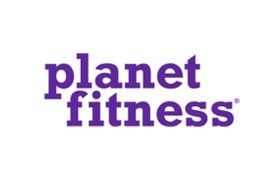For those embarking on a weight loss journey, the eagerness to see the number on the scale drop is natural but focusing solely on this can lead to unintended health consequences. Rapid weight loss often results in muscle loss, water depletion, or nutrient deficiencies, which can compromise overall health. Instead, prioritizing sustainable fat loss over merely shedding weight is crucial for long-term well-being and fitness.
The difference between losing weight and losing fat lies in the composition. Weight loss reflects the total reduction in body mass, including muscle, water, and fat. Fat loss, on the other hand, specifically targets the reduction of stored body fat, preserving lean muscle mass and supporting a healthier body composition. Adopting a balanced approach with nutrient-rich meals, regular physical activity, and a focus on building strength ensures that weight loss is not only effective but also sustainable and beneficial for overall health.
Demerits of Rapid Weight Loss
Rapid weight loss, often achieved through extreme diets and excessive cardio, comes with significant downsides:
- Muscle Loss: Strict diets and insufficient protein intake lead to muscle breakdown, which lowers metabolism and weakens the body.
- Water Weight Loss: Initial weight loss is often water, not fat, making it unsustainable.
- Skin Elasticity Issues: Losing weight too quickly can cause loose, sagging skin as the body doesn’t have time to adjust.
- “Skinny Fat” Appearance: Losing muscle instead of fat results in a less toned look, with low muscle definition and higher fat percentage.
- Hair Loss and Nutritional Deficiencies: Extreme calorie cuts often lack essential nutrients, leading to brittle hair, hair fall, and overall health decline.
- Metabolic Slowdown: The body adapts to low calorie intake by reducing metabolic rate, making it harder to maintain or lose weight later.
- Weight Regain: Crash diets are unsustainable, leading to rapid regaining of weight once normal eating resumes.
Effective and Sustainable Fat Loss Strategies
Moderate Calorie Deficit:
- Aim for a deficit of 500–700 calories per day for gradual, healthy weight loss (0.5–1 kg per week).
- Include balanced meals with carbohydrates, fats, and proteins.
Prioritize Protein:
- Protein helps preserve muscle, boosts metabolism, and enhances satiety.
- Sources: Eggs, chicken, fish, tofu, legumes, dairy products, and nuts.
Weight Training Over Cardio:
- Strength training builds muscle increases metabolism and improves body composition.
- Combine weight training with moderate-intensity cardio for cardiovascular health.
Hydration and Recovery:
- Drink adequate water to support metabolism and prevent water retention.
- Ensure 7–9 hours of sleep to aid recovery and hormonal balance.
Focus on Long-Term Habits:
- Practice mindful eating, portion control, and consistent exercise.
- Avoid extreme measures and embrace a sustainable lifestyle change.
This balanced approach not only promotes fat loss but also ensures better overall health, lean muscle preservation, and lasting results.
Disclaimer:
The information contained in this article is for educational and informational purposes only and is not intended as a health advice. We would ask you to consult a qualified professional or medical expert to gain additional knowledge before you choose to consume any product or perform any exercise.







